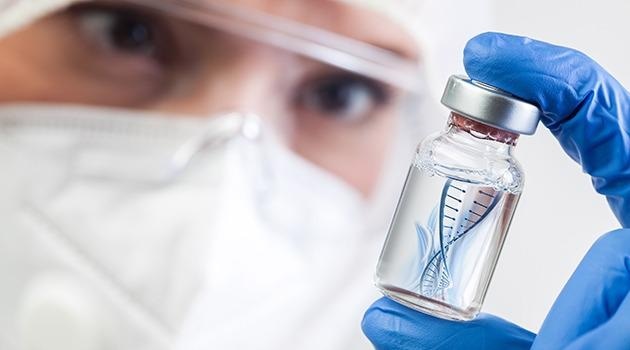The probability of blood clots in the lungs of very sick COVID-19 patients is influenced by a gene variant in the natural immune system. This is demonstrated in a new study published in Nature Immunology by researchers from Uppsala University and Karolinska Institutet.
 Researchers have found that a gene variant, which regulates the levels of a certain protein in the blood, protects against blood clots in the lungs. Image Credit: Getty Images.
Researchers have found that a gene variant, which regulates the levels of a certain protein in the blood, protects against blood clots in the lungs. Image Credit: Getty Images.
With this study, we are a step closer in explaining why COVID-19 patients have a substantially increased risk of blood clots.”
Oskar Eriksson, Study Main Author, Medical Doctor and Researcher, Department of Immunology, Genetics and Pathology, Uppsala University
During the pandemic, it became clear that patients with COVID-19 had a significantly elevated risk of blood clots, even when medicated with blood thinners. It is unclear why COVID-19 causes such a significant activation of the blood coagulation system in some persons.
A gene variant that governs the level of the protein mannose-binding lectin in the blood has been revealed to protect against blood clots in the lungs, according to researchers at Uppsala University and Karolinska Institutet.
Recognizes the corona virus
The natural immune system has a mannose-binding lectin. It detects and removes bacteria and virus-infected cells. Another research (Stravalaci et al., Nature Immunology, issue 23, pages 275–286 (2022)) found that the mannose-binding lectin recognizes the SARS-CoV-2 virus that produces COVID-19 and may neutralize infected cells.
“We can now show how mannose-binding lectin influences the course of the illness COVID-19. It is striking that it is the risk for blood clots that is impacted, and we could not see that mannose-binding lectin influences the risk of becoming ill with COVID-19. We can show that the immune system is important for blood clot formation in COVID-19 patients, something that was long suspected and that can explain why such high doses of blood thinners have been necessary,” Eriksson adds.
The large studies that have been presented in the last year have identified several gene variants that influence the risk of becoming severely ill from COVID-19. Our work shows that there is also a genetic background for which complications affect COVID-19 patients.”
Hugo Zeberg, Study Co-Author, Physician and Researcher, Karolinska Institutet
Source:
Journal reference:
Hultström, M., et al. (2022) Genetic determinants of mannose-binding lectin activity predispose to thromboembolic complications in critical COVID-19. Nature Immunology. doi.org/10.1038/s41590-022-01227-w.